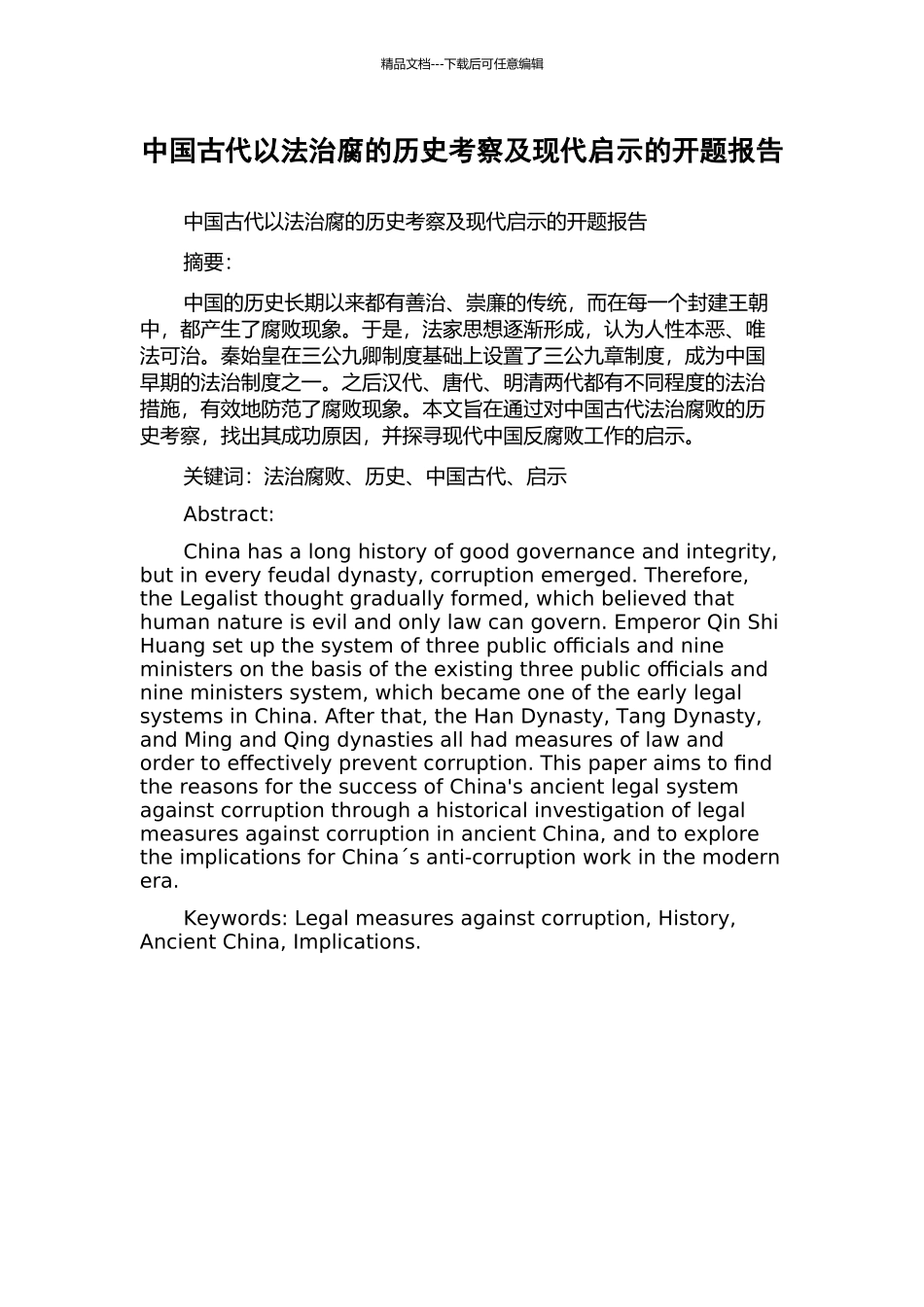精品文档---下载后可任意编辑中国古代以法治腐的历史考察及现代启示的开题报告中国古代以法治腐的历史考察及现代启示的开题报告摘要:中国的历史长期以来都有善治、崇廉的传统,而在每一个封建王朝中,都产生了腐败现象。于是,法家思想逐渐形成,认为人性本恶、唯法可治。秦始皇在三公九卿制度基础上设置了三公九章制度,成为中国早期的法治制度之一。之后汉代、唐代、明清两代都有不同程度的法治措施,有效地防范了腐败现象。本文旨在通过对中国古代法治腐败的历史考察,找出其成功原因,并探寻现代中国反腐败工作的启示。关键词:法治腐败、历史、中国古代、启示Abstract:China has a long history of good governance and integrity, but in every feudal dynasty, corruption emerged. Therefore, the Legalist thought gradually formed, which believed that human nature is evil and only law can govern. Emperor Qin Shi Huang set up the system of three public officials and nine ministers on the basis of the existing three public officials and nine ministers system, which became one of the early legal systems in China. After that, the Han Dynasty, Tang Dynasty, and Ming and Qing dynasties all had measures of law and order to effectively prevent corruption. This paper aims to find the reasons for the success of China's ancient legal system against corruption through a historical investigation of legal measures against corruption in ancient China, and to explore the implications for China´s anti-corruption work in the modern era.Keywords: Legal measures against corruption, History, Ancient China, Implications.
